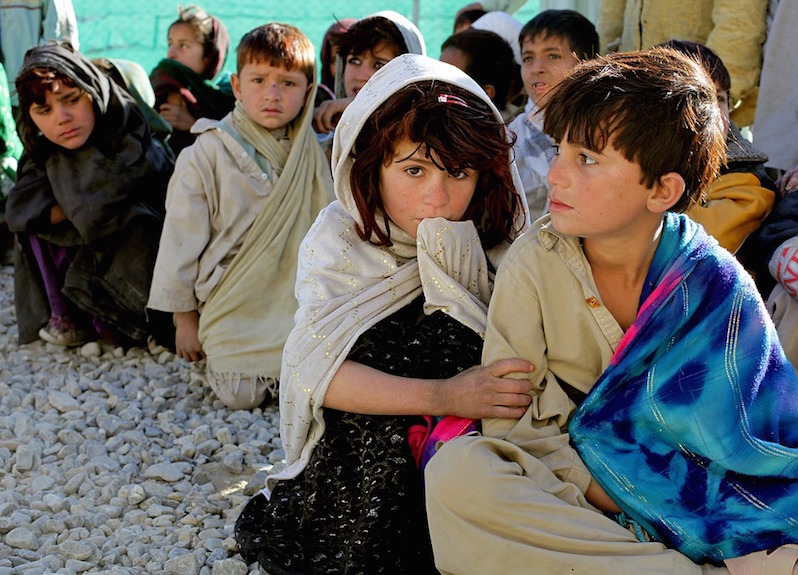One Child’s Harrowing Journey From Afghanistan to Sweden
She was only 14 when her mother decided that Nasima’s best hope for a future meant leaving her home, her family and everything she knew to make a grueling trek to Europe. Afghanistan is one of the poorest countries in the world, with 36 percent of its population living below the poverty line. (Pixabay)
1
2
Afghanistan is one of the poorest countries in the world, with 36 percent of its population living below the poverty line. (Pixabay)
1
2
Nasima began her journey in Ghazni, then traveled through Iran, Turkey, Greece, Macedonia, Hungary, Austria, Germany and Denmark, until she reached Sweden. Although she started out with her mother’s friend, due to the grueling and sometimes dangerous circumstances of the trip, they did not always travel together. Nasima was essentially on her own.
The journey took two months, during September and October, when the migration crisis was at its peak. As she traveled through Afghanistan, Nasima lived in fear of the Taliban. While the Afghan unity government has influence over the bigger cities, the Taliban still exerts power in the suburbs and controls the highways. “They would kill me if they see a girl traveling alone,” she explains.
The war between the Taliban and the unity government was still underway while Nasima crossed Afghanistan.
“They were throwing rockets and firing at each other, and we were stuck in between,” she says.
From the Afghan province of Nimroz, Nasima traveled to Pakistan in a truck, with 35 to 45 other men and women. Because the border between Iran and Pakistan was closed, Nasima and the rest of the travelers had to wait in Pakistan for eight or nine days.
For Nasima, crossing the border between Iran and Turkey was her worst experience, one that made her feel like giving up the rest of the journey. For six continuous nights, the smuggler asked her group to walk from sunset till sunrise.
“We had to climb a very steep mountain,” she says. “The smuggler used to beat us up if we walked slowly or were tired.”
As they prepared to cross the Mediterranean, Nasima slept in the jungle for six nights straight due to stormy weather and police surveillance. She thought she was going to die from the cold, rain and hunger.
“For six continuous nights, we were [burning] wood in the jungle to warm ourselves, but when the police were approaching, we had to put it off and bear the cold.”
The horrors of the journey continue to haunt her.
“On the way from Iran to Turkey, I have seen dead bodies lying around,” Nasima says. “The people who were with me wanted to help, but the smuggler did not allow it.”
Although she grew up in a war-affected area and had experienced hardships, her two-month journey to Sweden left her with distressing memories and lingering psychological effects.
Asylum-seeking is a highly stressful process, and it leaves unaccompanied children with grave concerns about their future, especially after experiencing challenging journeys.
Once they arrive at their destination, they need more than a guardian, food and shelter in order to move securely forward.
Five months after her journey, Nasima feels a lack of support.
“I cannot share these experiences with anyone,” she says.
A program to help unaccompanied Afghan children deal with the psychological toll of their journeys would help, she says, but Sweden will never be able to fill every void.
“I am happy, but it does not feel home.”
Nazifa Alizada of Afghanistan is a graduate of the Asian University for Women. She is also a 2016 Young Connectors of the Future fellow at the Swedish Institute and has worked as a research assistant for the Family Empowerment Study since 2013.
Your support matters…
SUPPORT TRUTHDIG
Independent journalism is under threat and overshadowed by heavily funded mainstream media.
You can help level the playing field. Become a member.
Your tax-deductible contribution keeps us digging beneath the headlines to give you thought-provoking, investigative reporting and analysis that unearths what's really happening- without compromise.
Give today to support our courageous, independent journalists.






You need to be a supporter to comment.
There are currently no responses to this article.
Be the first to respond.